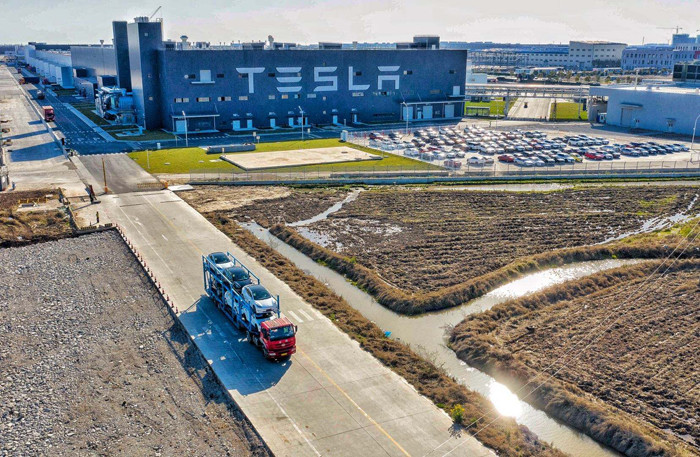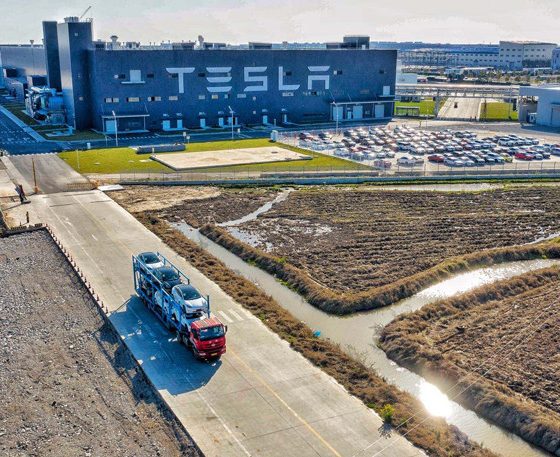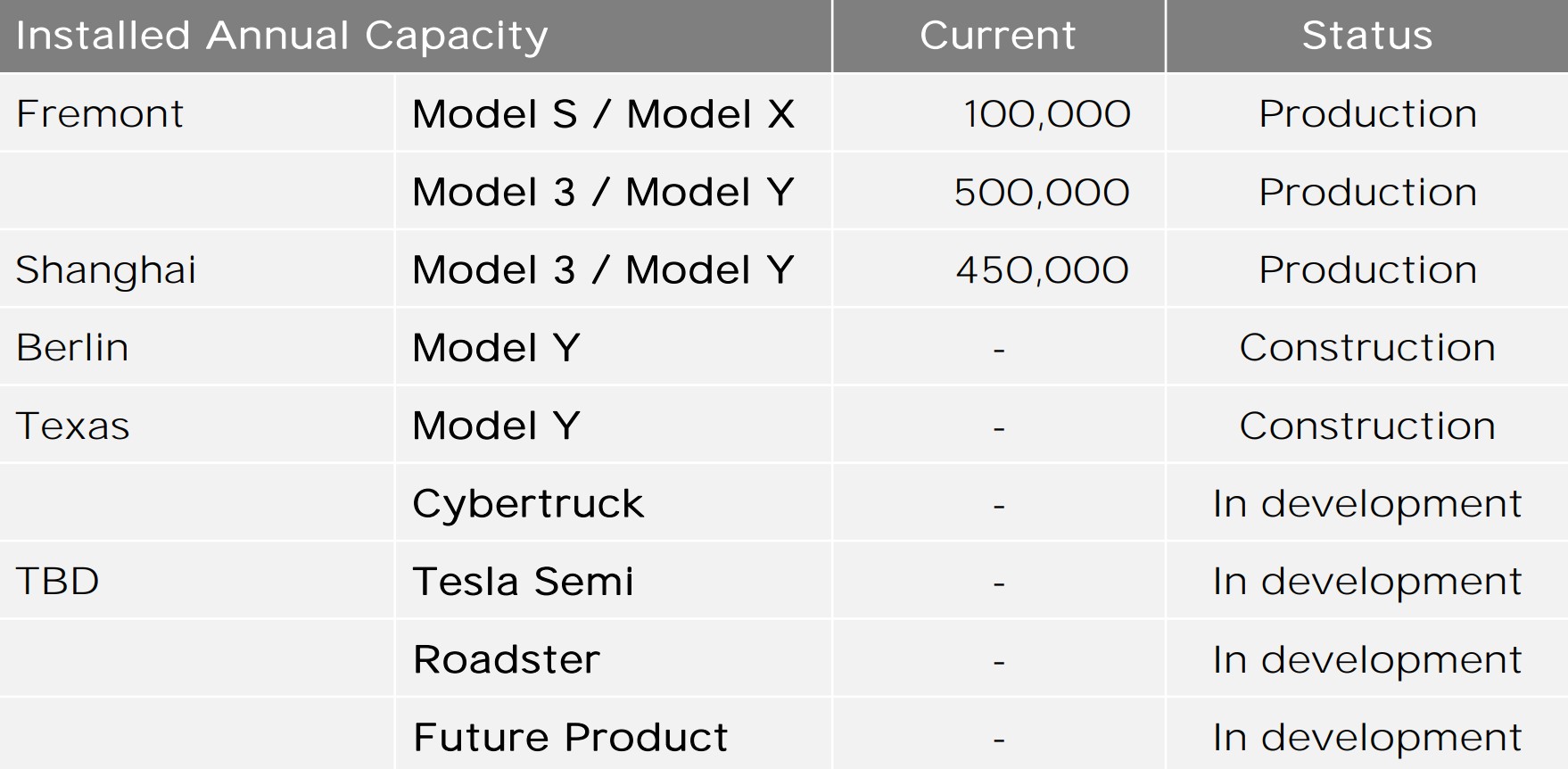

Investor's Corner
Tesla stock pullback temporary, China demand paves way to $1T market cap, Wedbush says
Tesla (NASDAQ: TSLA) stock has experienced a slight pullback in the last few weeks, tanking to losses that equate to just under 16% since the beginning of 2021. Wedbush analyst Dan Ives believes the pullback is temporary, and that Tesla could still bring a reward to investors who stand by the automaker’s stock through 2021, as demand, especially in China, may pave the way for the elusive $1 trillion market capitalization.
Already owning the title as the World’s Most Valuable Automaker, Tesla’s meteoric rise on Wall Street was fueled by the ability to overcome adversity in a challenging economic climate in 2020 thanks to the COVID-19 pandemic. Furthermore, a year that saw the automotive industry decline as a whole didn’t treat Tesla the same way, as the electric car company managed to outperform itself once again, marking 2020 as its best year in company history.
The beginning of 2021 has seen a different tune to Tesla’s performance on Wall Street. Investors have been spoiled with hand-over-fist gains in 2020, but a Q4 2020 Earnings Call that didn’t outline the company’s goals for the 2021 fiscal year left some analysts feeling unsatisfied and unsure about the company’s goals for the year.
While Tesla didn’t give a specific figure, as last year it outlined a goal of 500,000 deliveries, which it came close to at 499,550 for the year, Elon Musk and Co. did outline targets for growth in a percentage factor, indicating that it expects “to achieve 50% average annual growth in vehicle deliveries. In some years we may grow faster, which we expect to be the case in 2021.”
Ives, a Wedbush analyst who has been bullish on Tesla, believes a million vehicles could be delivered by next year, with China being the main supplier of the company’s momentum in the coming years.
Ives wrote in a note to investors (via Financial Review):
“We believe China could see eye-popping demand into 2021 and 2022 across the board with Tesla’s flagship Giga 3 footprint a major competitive advantage, as domestic players such as BYD, Nio, Xpeng, and Li also are also firing on all cylinders and just scratching the surface of the overall TAM in China…If China stays on its current path for Tesla, Musk & Co. could hit one million delivery units globally by 2022. This speaks to our thesis that Tesla will hit a trillion-dollar market cap in 2021 despite this risk-off moment for EV stocks with the bears coming back to life after a long hibernation in their caves over the past year.”
At 1:45 PM EST, Tesla’s market cap sat at $590.06 billion, and shares were trading at $610.02.
The company’s current delivery output projections, which combine the total yearly output of its currently-active plants, would put the company at a forecasted 1,050,000 production rate for 2021. Deliveries would be within a few percentage points of that, as the company does not typically hold inventory.
Credit: Tesla
Outlook for 2021, according to Ives, seems to point toward quickly accelerating demand and expansion in China, where Tesla has been extremely competitive. Only one vehicle has managed to outsell the Tesla Model 3 in China: a GM-produced car called the Wuling HongGuang Mini EV, which doesn’t compete with any of Tesla’s cars in terms of range or performance.
As for the rest of the industry, Wedbush doesn’t believe the surge is anywhere from over. An extremely young and new sector in the grand scheme of things, the EV industry is influencing mass change within legacy automakers, who are being forced to adapt to the changing sector. “Our answer is emphatically that the EV party and transformation is just beginning as this industry is on the cusp of a $US5 trillion ($6.4 trillion) market opportunity over the next decade,” Wedbush said.
Disclosure: Joey Klender is a TSLA Shareholder.

Elon Musk
Tesla to a $100T market cap? Elon Musk’s response may shock you

There are a lot of Tesla bulls out there who have astronomical expectations for the company, especially as its arm of reach has gone well past automotive and energy and entered artificial intelligence and robotics.
However, some of the most bullish Tesla investors believe the company could become worth $100 trillion, and CEO Elon Musk does not believe that number is completely out of the question, even if it sounds almost ridiculous.
To put that number into perspective, the top ten most valuable companies in the world — NVIDIA, Apple, Alphabet, Microsoft, Amazon, TSMC, Meta, Saudi Aramco, Broadcom, and Tesla — are worth roughly $26 trillion.
Will Tesla join the fold? Predicting a triple merger with SpaceX and xAI
Cathie Wood of ARK Invest believes the number is reasonable considering Tesla’s long-reaching industry ambitions:
“…in the world of AI, what do you have to have to win? You have to have proprietary data, and think about all the proprietary data he has, different kinds of proprietary data. Tesla, the language of the road; Neuralink, multiomics data; nobody else has that data. X, nobody else has that data either. I could see $100 trillion. I think it’s going to happen because of convergence. I think Tesla is the leading candidate [for $100 trillion] for the reason I just said.”
Musk said late last year that all of his companies seem to be “heading toward convergence,” and it’s started to come to fruition. Tesla invested in xAI, as revealed in its Q4 Earnings Shareholder Deck, and SpaceX recently acquired xAI, marking the first step in the potential for a massive umbrella of companies under Musk’s watch.
SpaceX officially acquires xAI, merging rockets with AI expertise
Now that it is happening, it seems Musk is even more enthusiastic about a massive valuation that would swell to nearly four-times the value of the top ten most valuable companies in the world currently, as he said on X, the idea of a $100 trillion valuation is “not impossible.”
It’s not impossible
— Elon Musk (@elonmusk) February 6, 2026
Tesla is not just a car company. With its many projects, including the launch of Robotaxi, the progress of the Optimus robot, and its AI ambitions, it has the potential to continue gaining value at an accelerating rate.
Musk’s comments show his confidence in Tesla’s numerous projects, especially as some begin to mature and some head toward their initial stages.
Elon Musk
Tesla director pay lawsuit sees lawyer fees slashed by $100 million
The ruling leaves the case’s underlying settlement intact while significantly reducing what the plaintiffs’ attorneys will receive.

The Delaware Supreme Court has cut more than $100 million from a legal fee award tied to a shareholder lawsuit challenging compensation paid to Tesla directors between 2017 and 2020.
The ruling leaves the case’s underlying settlement intact while significantly reducing what the plaintiffs’ attorneys will receive.
Delaware Supreme Court trims legal fees
As noted in a Bloomberg Law report, the case targeted pay granted to Tesla directors, including CEO Elon Musk, Oracle founder Larry Ellison, Kimbal Musk, and Rupert Murdoch. The Delaware Chancery Court had awarded $176 million to the plaintiffs. Tesla’s board must also return stock options and forego years worth of pay.
As per Chief Justice Collins J. Seitz Jr. in an opinion for the Delaware Supreme Court’s full five-member panel, however, the decision of the Delaware Chancery Court to award $176 million to a pension fund’s law firm “erred by including in its financial benefit analysis the intrinsic value” of options being returned by Tesla’s board.
The justices then reduced the fee award from $176 million to $70.9 million. “As we measure it, $71 million reflects a reasonable fee for counsel’s efforts and does not result in a windfall,” Chief Justice Seitz wrote.
Other settlement terms still intact
The Supreme Court upheld the settlement itself, which requires Tesla’s board to return stock and options valued at up to $735 million and to forgo three years of additional compensation worth about $184 million.
Tesla argued during oral arguments that a fee award closer to $70 million would be appropriate. Interestingly enough, back in October, Justice Karen L. Valihura noted that the $176 award was $60 million more than the Delaware judiciary’s budget from the previous year. This was quite interesting as the case was “settled midstream.”
The lawsuit was brought by a pension fund on behalf of Tesla shareholders and focused exclusively on director pay during the 2017–2020 period. The case is separate from other high-profile compensation disputes involving Elon Musk.
Investor's Corner
Tesla (TSLA) Q4 and FY 2025 earnings call: The most important points
Executives, including CEO Elon Musk, discussed how the company is positioning itself for growth across vehicles, energy, AI, and robotics despite near-term pressures from tariffs, pricing, and macro conditions.

Tesla’s (NASDAQ:TSLA) Q4 and FY 2025 earnings call highlighted improving margins, record energy performance, expanding autonomy efforts, and a sharp acceleration in AI and robotics investments.
Executives, including CEO Elon Musk, discussed how the company is positioning itself for growth across vehicles, energy, AI, and robotics despite near-term pressures from tariffs, pricing, and macro conditions.
Key takeaways
Tesla reported sequential improvement in automotive gross margins excluding regulatory credits, rising from 15.4% to 17.9%, supported by favorable regional mix effects despite a 16% decline in deliveries. Total gross margin exceeded 20.1%, the highest level in more than two years, even with lower fixed-cost absorption and tariff impacts.
The energy business delivered standout results, with revenue reaching nearly $12.8 billion, up 26.6% year over year. Energy gross profit hit a new quarterly record, driven by strong global demand and high deployments of MegaPack and Powerwall across all regions, as noted in a report from The Motley Fool.
Tesla also stated that paid Full Self-Driving customers have climbed to nearly 1.1 million worldwide, with about 70% having purchased FSD outright. The company has now fully transitioned FSD to a subscription-based sales model, which should create a short-term margin headwind for automotive results.
Free cash flow totaled $1.4 billion for the quarter. Operating expenses rose by $500 million sequentially as well.
Production shifts, robotics, and AI investment
Musk further confirmed that Model S and Model X production is expected to wind down next quarter, and plans are underway to convert Fremont’s S/X line into an Optimus robot factory with a capacity of one million units.
Tesla’s Robotaxi fleet has surpassed 500 vehicles, operating across the Bay Area and Austin, with Musk noting a rapid monthly expansion pace. He also reiterated that CyberCab production is expected to begin in April, following a slow initial S-curve ramp before scaling beyond other vehicle programs.
Looking ahead, Tesla expects its capital expenditures to exceed $20 billion next year, thanks to the company’s operations across its six factories, the expansion of its fleet expansion, and the ramp of its AI compute. Additional investments in AI chips, compute infrastructure, and future in-house semiconductor manufacturing were discussed but are not included in the company’s current CapEx guidance.
More importantly, Tesla ended the year with a larger backlog than in recent years. This is supported by record deliveries in smaller international markets and stronger demand across APAC and EMEA. Energy backlog remains strong globally as well, though Tesla cautioned that margin pressure could emerge from competition, policy uncertainty, and tariffs.








